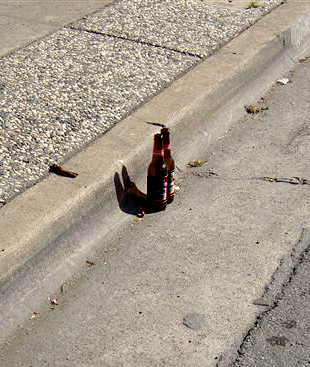Males lead booze harm
 New stats show men bear the brunt of alcohol-related injury and death in Australia.
New stats show men bear the brunt of alcohol-related injury and death in Australia.
This article contains information some readers may find distressing as it refers to data about alcohol use, assault, suicide and self-harm.
Of the 1,950 alcohol-related injury deaths and 30,000 hospitalisations in 2019–20, over 1,500 (78 per cent) and almost 18,000 (59 per cent) were among males, according to a new report from the Australian Institute of Health and Welfare (AIHW).
The report shows the leading causes for alcohol-related injury deaths in 2019 and 2020 among males were suicide (48 per cent), accidental poisoning (23 per cent) and transport (12 per cent). For females, suicide (43 per cent), accidental poisoning (33 per cent) and falls (9 per cent) were the leading causes.
“Overall, these accounted for 5.7 per cent of all injury hospitalisations and 14 per cent of the 13,400 injury deaths among Australians. However, this is likely an underestimate, previous research has shown the presence of alcohol is often not included in a patient’s records,” the report states.
“Most injury events are preventable, but the consumption of alcohol can increase the risk of injury. Today’s report includes injury cases where alcohol may have been wholly responsible for the injury (for example, alcohol poisoning) or partially responsible (such as falls or intentional self-harm injury),” said AIHW spokesperson Dr Heather Swanston.
While the leading causes of alcohol-related injury hospitalisations were the same for males and females, there were some notable differences.
Among males, falls accounted for 43 per cent of injuries, followed by intentional self-harm (17 per cent), assault (14 per cent) and transport (9 per cent).
For females, falls represented 35 per cent of alcohol-related hospitalisations, followed by intentional self-harm (33 per cent), assault (15 per cent), transport (4 per cent).
The majority of alcohol-related injury hospitalisations occurred in the 45–49 (1,641, 9 per cent) and 20–24 (1,629, 9 per cent) age groups for males, and in the 45–49 (1,386, 11 per cent) age group for females.
“There were 20 per cent fewer alcohol-related injury hospitalisations during April 2020 [ a period affected by COVID-19 lockdowns - compared to the same month the previous year. However, as COVID-19 related restrictions eased, alcohol-related injury hospital admissions had returned to pre-pandemic levels by June 2020,” Dr. Swanston said.
The rate of deaths from alcohol-related injuries in Australia more than doubled between 2010–11 and 2019–20, increasing from 4.8 to 9.7 deaths per 100,000 (840 compared to 1,950 deaths).
However, alcohol-related injury deaths decreased by 10 per cent between 2018–19 and 2019–20, the period affected by COVID-19 lockdowns.
Dr Swanston noted that some groups were more likely to experience higher rates of alcohol-related injury hospitalisations.
Very remote areas of Australia had the highest rates of alcohol-related injury hospitalisations, over 8 times the national rate and almost 11 times the rate for people living in major cities.
Those living in the lowest of five socioeconomic areas were more than twice as likely to be hospitalised for an alcohol-related injury than those in the highest socioeconomic area.
The databases used to conduct this research do not include information on cases where a person was treated in an emergency department or by a general or allied health practitioner and was not admitted to the hospital.
National Crisis Services:
-
Lifeline 13 11 14 www.lifeline.org.au
-
1800RESPECT (support for people impacted by sexual assault, domestic or family violence and abuse) 1800 737 732 www.1800respect.org.au
-
National Alcohol and Other Drug Hotline 1800 250 015







 Print
Print